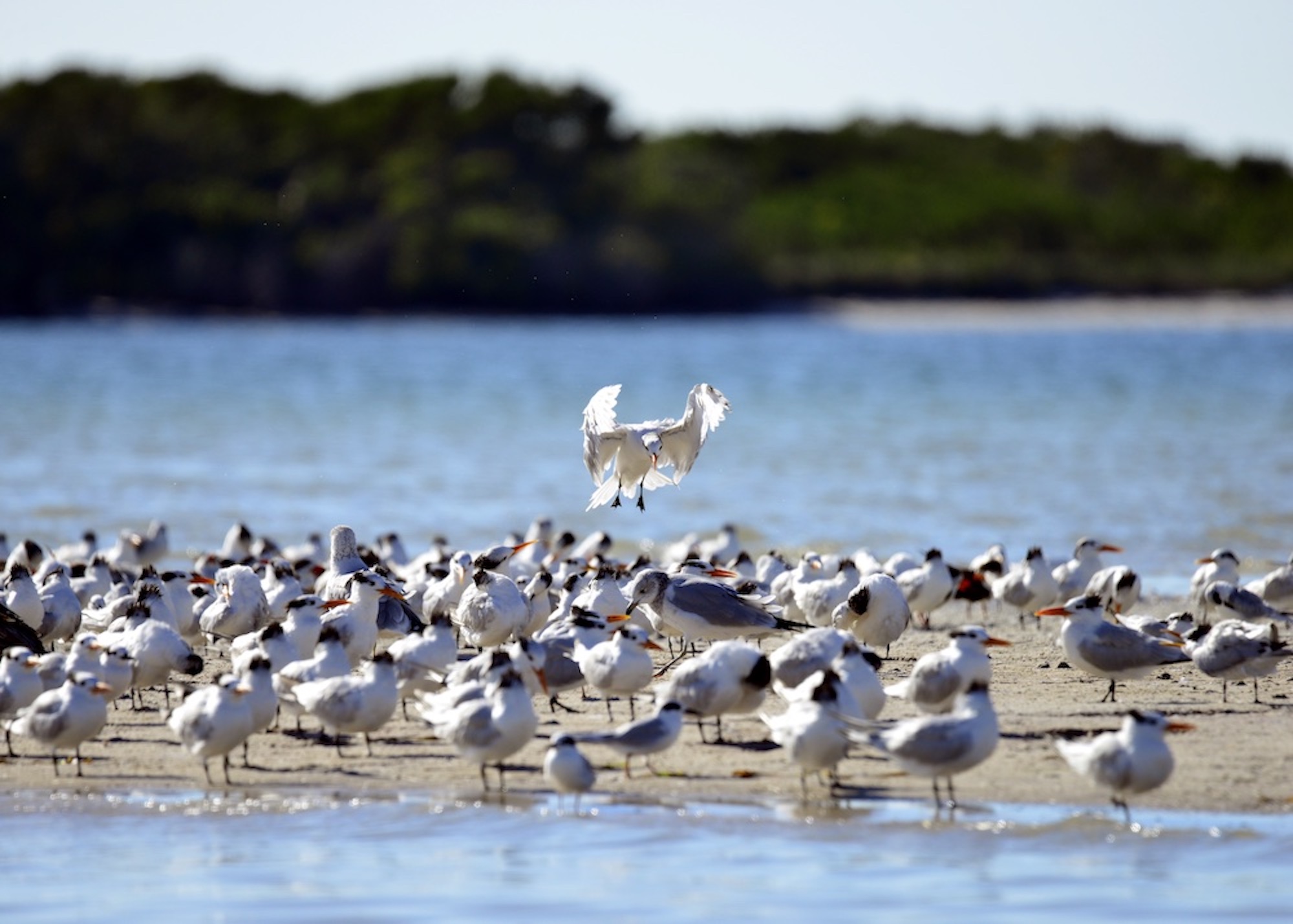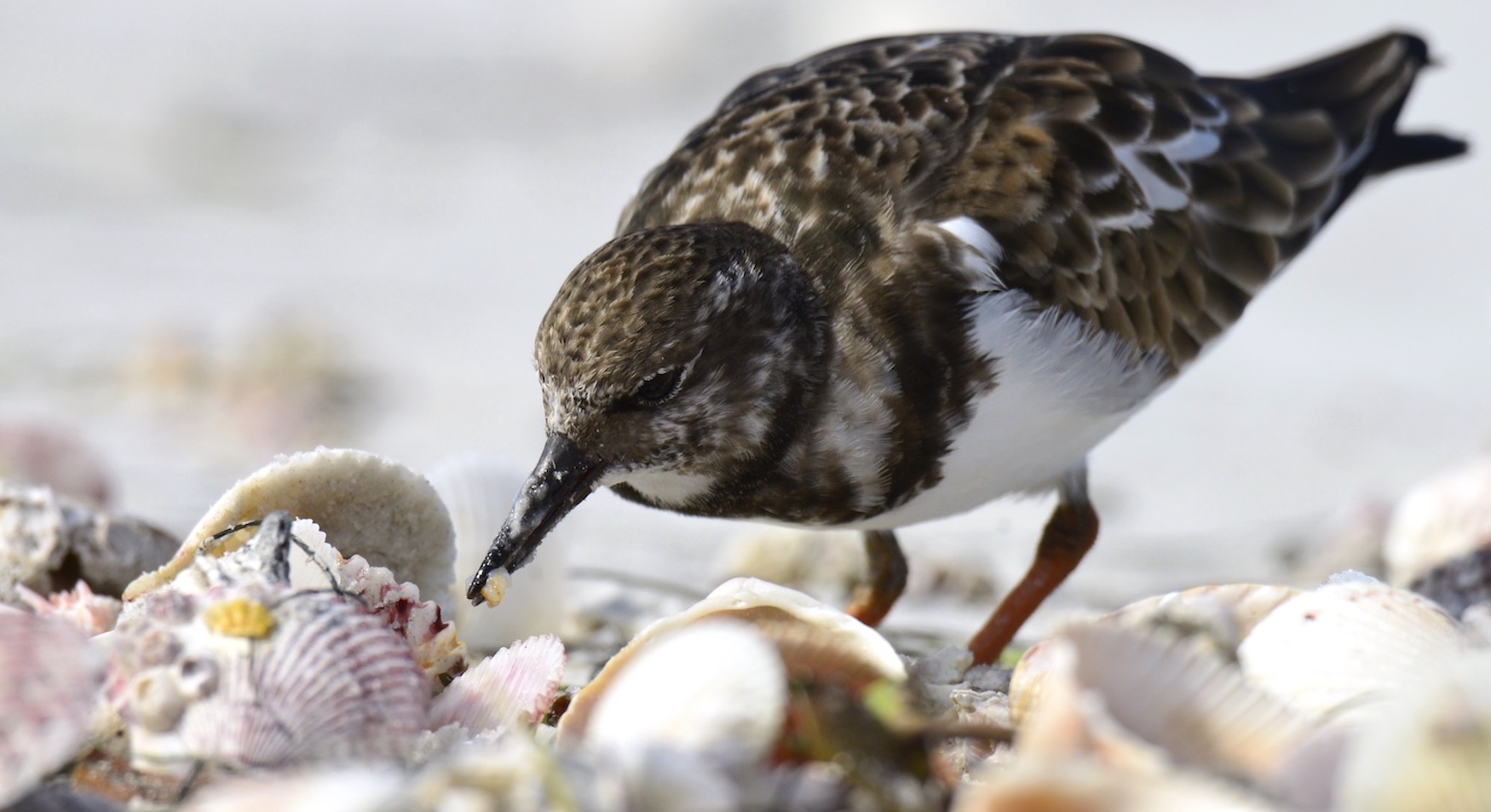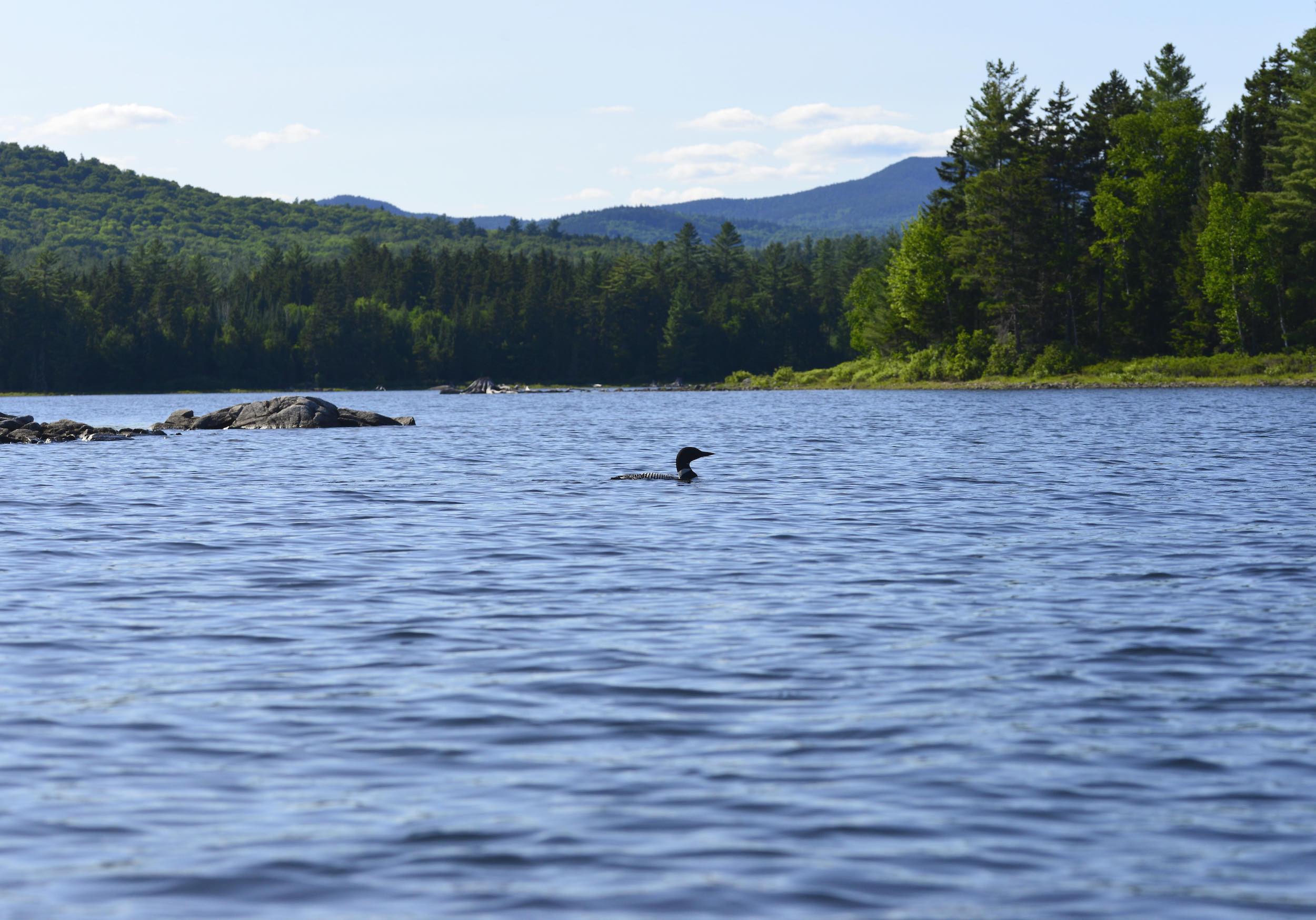Royal Tern – IUCN Conservation Status: Least Concern As the scientific name implies, royal terns are almost always found near the ocean and often on sandbars completely surrounded by water The scientific name for this bird is “Thalasseus maximus”. “Thalasseus” in ancient Greek means “sea”, and “maximus” translates to “greatest” in Latin. As the scientific name implies, […]
Ruddy Turnstone
Ruddy Turnstone – IUCN Conservation Status: Least Concern This ruddy turnstone is missing its right foot This small shorebird is called a ruddy turnstone. They are found on beaches across the world. In the United States, we can find them on both coasts, typically in the spring and fall. Despite sounding like a beach bum bird, these birds […]
Cumulus Clouds Myrtle Beach
National Weather Service Clouds are described in three categories: cumuloform, stratoform, or cirroform. This month our gallery theme is “Clouds”. We will be exploring the different types of clouds that blanket earth. A man named Luke Howard was the first to publish a classification system for cloud types. He published this cloud classification system back in 1802! We still […]
Mount Madison
White Mountain National Forest Mount Madison is the northernmost peak in the Presidential Range. This photograph was taken in the White Mountains of New Hampshire. The cloud cover is right at the summit altitude, roughly 5000 feet. Mount Madison is the northernmost peak in the Presidential Range. Like other summits in the Presidential Range, Mount Madison has a […]
Seals at Salisbury Park
National Weather Service Composing a photo can be tricky when you are contending with current, wind, and an environment that doesn’t allow you to use a tripod. For context, the foreground is the Atlantic Ocean and three seals. The land in the midground of this photo is Salisbury Beach State Park in Massachusetts. The clouds in the […]
Blue Neon Goby
Blue Neon Goby – IUCN Conservation Status: Least Concern This species of coral looks alien, with the orange, red, and green coloration and texture. This species of coral looks alien, with the orange, red, and green coloration and texture. I’ve always enjoyed this species coral, which can grow to be quite large and live hundreds of […]
Sea Rod
Saddled Blenny – IUCN Conservation Status: Least Concern A sea rod is a soft coral that is affixed to the seafloor like a tree, with a central trunk. Corals can be separated into two categories, hard corals and soft corals. Hard corals generate a calcium carbonate skeleton and tend to be known as reef building corals. Soft […]
Rough Cactus Coral
Rough Cactus Coral – IUCN Conservation Status: Critically Endangered Although we are too zoomed-in to tell, the rough cactus coral colony is roundish in shape. Stony coral, like this rough cactus coral, have a limestone skeleton with a fleshy, colorful, textured, outer skin. As a scuba diver, if you spend time looking closely at coral, you […]
Loon
Common Loon – IUCN Conservation Status: Least Concern Loons are often confused with ducks because they are about the same size and also swim like a duck. In the remote northwestern corner of Maine is a large lake with a large name, “Mooselookmeguntic”. The word comes from the Abnaki and means “moose feeding place”. It is technically […]
Chisos Mountains
Big Bend National Park The highest peak in the Chisos Mountains is Emory Peak at 7,825 feet This photo comes from a 2021 trip Ben, Nick, and I took to Big Bend National Park in west Texas. The photo shows the Chisos Mountains about an hour before sunset, commonly referred to as the golden hour of […]









